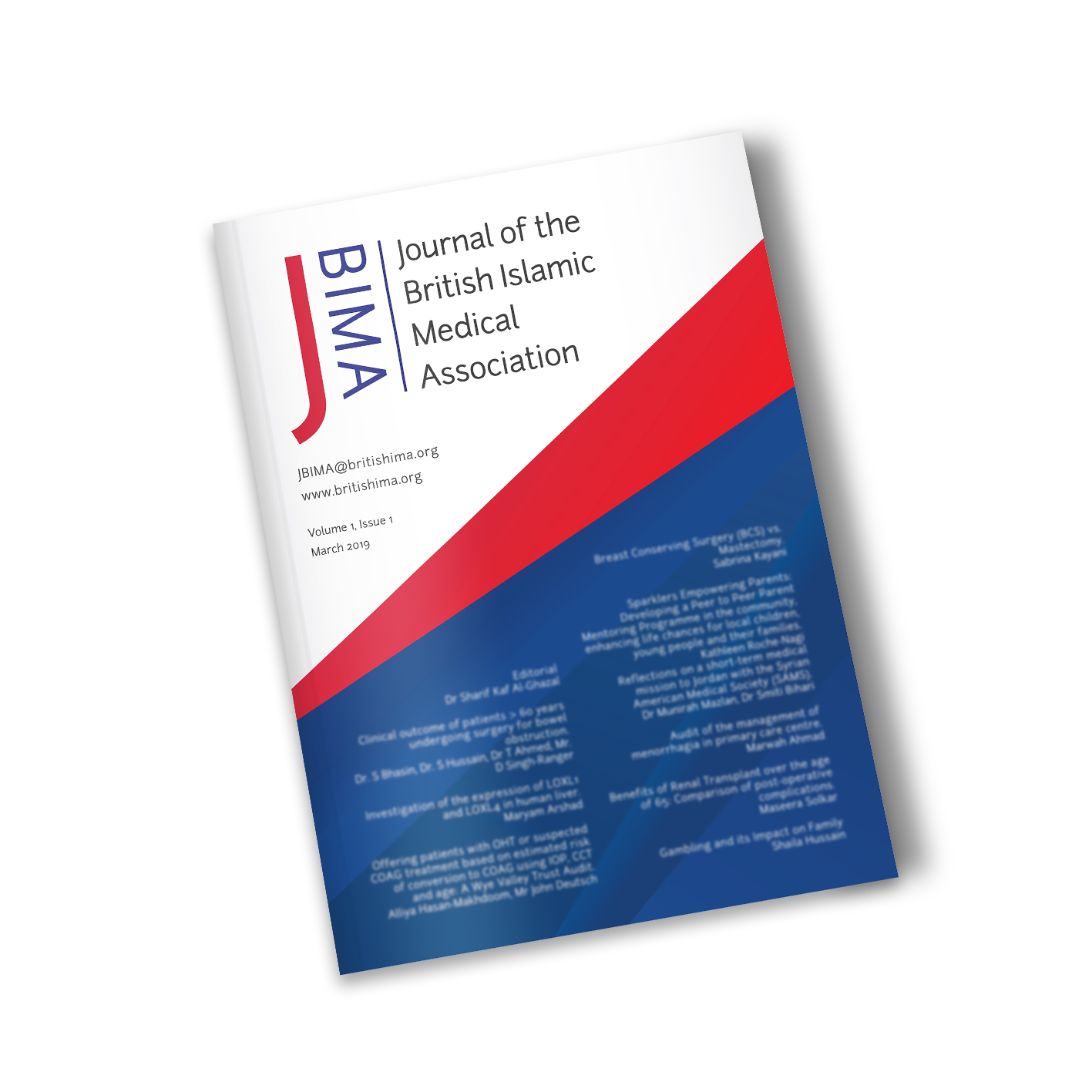
Assalamo Alaikom all,
As we look back at 2024, it has been an eventful year. And whilst there is a lot to reflect on, there are a few
matters worth considering in more depth. As always, we strive as healthcare professionals to be proactive as opposed to reactive; prevention is better than cure, but we find ourselves in unchartered territory in a some areas where we cannot always plan.
Firstly, the controversial assisted dying bill was approved by the House of Commons in late November 2024 in what was, at times, a robust and challenging debate. Only the first step has been taken, and the approved bill has a number of stages where amendments may be introduced and discussed, but this is a big step forward for assisted dying campaigners and also deeply concerning to us as Muslim healthcare professionals. The bill which has passed requires two doctors to assess and verify whether a patient should truly be expected to die within 6 months.
As doctors, we took the Hippocratic Oath to save lives, not to end them. There is a real fear that we become part of an assisted dying service where we are making active decisions to allow people to die. This isn’t an issue of DNR; it is actively stating that some patients are terminally ill and their death should be brought forward, which fundamentally contradicts the role healthcare professionals play.
As Muslims, we believe in the sanctity of life and that Allah (SWT) is the sole determiner of when life begins
and ends. Moreover, NHS resources are surely better directed at improved palliative and terminal care for patients than allowing them to choose to die. If terminally ill patients could access better healthcare that eases their pain to the greatest extent possible, it is likely that they would want to live. The government’s own Health Secretary, Wes Streeting, was on record stating that assisted dying would re-allocate resources from areas that the NHS is already struggling with.
Moreover, there is always a fear that a patient may have been coerced or subtly forced into making this decision to end their life. Signs of abuse and coercion can be difficult to spot and raise red flags about the process.
The ongoing medical catastrophe in Gaza is extremely concerning, and as we look back on 14 months of Israeli bombardment since October 2023, hopes for a ceasefire are as slim as they were earlier in the year. Well over 50,000 Palestinians in Gaza have been killed, and the medical situation as described in previous editions of JBIMA and various articles, is apocalyptic. Al-Shifa hospital, the most well-known in Gaza, is barely recognisable to how it once looked and the hospital is essentially a graveyard. Kamal Adwan Hospital has recently been declared empty by the World Health Organisation (WHO) as Israeli military forced staff and patients to leave.A few days before the New Year, as the WHO was reiterating calls to protect hospitals, the Israeli army detained Dr Hussam Abu Safia the director of one of the last functioning hospitals in Gaza which is a deeply concerning development. The situation is deteriorating, and there a number of articles in this issue that will touch upon this. A ceasefire has to be implemented immediately.
Events in the last few weeks in Syria where the regime of Bashar Al-Assad collapsed are worth celebrating, but his demise reminds us of the systematic targeting of hospitals by his regime during the Syrian conflict over the past 14 years. It is deeply ironic how an ophthalmologist. who also spent a short stint training in London, would go on to destroy countless hospitals as President. A mammoth reconstruction effort must now be undertaken in the country, and healthcare professionals from all specialities all have a huge role to play.
Finally, I would like to congratulate the newly elected President of BIMA, Dr Sahira Dar, who also happens to be the first female President of the organisation too.I am looking forward to seeing her develop BIMA’s work with stakeholders across the country and strengthen relationships with our partners. I would also like to extend my congratulations to the newly elected BIMA Council who will support this work and ensure the
governance of the organisation remains strong. And a huge “Thank You” to the outgoing President, Dr Salman Waqar, who has been outstanding in the role over the past 2 years. May Allah accept all your good deeds.
We ask Allah to ease the affairs of the people of Gaza and grant them Sabr. We also ask Allah to grant us a prosperous 2025 and a year in which we have much to celebrate.

